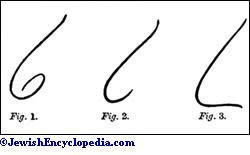Note on Death by Stoning
NOTE ON DEATH BY STONING
BY
DAVID ARTHUR WALTERS
“If a man have a stubborn and rebellious son, who will not obey the voice of his father, or the voice of his mother, and that, when they have chastened him, will not hearken unto them, then shall his father and mother lay hold of him, and bring him out unto the elders of his city, and unto the gate of his place; and they shall say unto the elders of his city, this our son is stubborn and rebellious, he will not obey our voice; he is a glutton, and a drunkard. And all the men of the city shall stone him with stones, that he die; so shalt thou put to death evil away among you, and all Israel shall hear, and fear.” Deuteronomy 21:18-21
The sacred Hebrew texts provide for lapidation or the stoning to death of anyone who disobeyed certain laws presumably handed down by YHWH to Moses, but it is debatable how often Jews observed the punitive prescription. We know of no instance, for example, where a kid was dragged out to the village gate and stoned to death for disobeying his parents. Indeed, their tribal god used other people to beat the hell out of Jews for disobeying the commandments including the injunction to stone criminals. Jews have cause to be great casuists. In any case involving a disobedient son, a good rabbi like a good defense lawyer today would likely obtain an acquittal, or prevent the stoning from being carried out, claiming that the punishment was cruel and unusual.
Fundamentalist Muslims take the stoning provision literally. For example, women and sometimes men are stoned to death to this very day for adultery. No educated Jew would condone that practice.
Hebrew law evolved over a great stretch of time. Casuistic stretching of the fundamental 'truth' was necessary especially during the dispersion, where unity was maintained under various legal systems. But even prior to the dispersion, the Jews were much kinder than their awesome deity, the Terrorist Almighty, although, depending on the occasion, some were punished severely for their infractions. The persons indicted might be handed over the outlaws to the political authority so that the religious court could wash its hands of capital punishment.
Witness the two trials of Jesus, one ecclesiastical, the other political. The original transcripts are not available, but we are left with the impression that the ecclesiastical court would not convict Jesus, and not because of insufficient evidence. If we accept the testimony of the gospels, Jesus was as guilty as sin of technical violations, and we are amazed that many witnesses were not brought forward to prove his guilt. In any case, he was handed over to the political court and reluctantly convicted of a capital crime after a fair trial, given the historical context. His crucifixion was notably far more painful than stoning, causing him to believe that the Almighty Power had forsaken him.
The practice of turning over 'heretics' to the political court was continued by the Catholics, but Catholics had the audacity to convict the offender beforehand, and deliver him, and often her, to the political authority for execution, giving lip service to biblical phrases, thus we have some reverse hand-washing. Burning at the stake was definitely more painful than stoning, and perhaps more painful than boiling in oil, a form of punishment said to be practice by ancient Hebrews. An axe in the hand of an English expert or a Arab knife properly applied to the back of the neck would be more humane, and a French guillotine even the more so.
The idea that the criminal should suffer the same crime as the victim took hold, but the archaic biblical lex taliones was not the general practice in Israelite courts. Instead, what is known in English law as "composition" or compensation for damages was the rule, a development coincident to the rise of kings over feuding tribes.
Even the King of Jews, knowing that everyone has naturally erred against society’s laws, would not have a woman stoned for adultery, yet today those Christians who approve of capital punishment say they forgive and even love criminals before executing them.
John recounts the story:
“But Jesus went to the Mount of Olives. At dawn he appeared again in the temple courts where all the people gathered around him, and he sat down to teach them. The teachers of the law and the Pharisees brought in a woman caught in adultery. They made her stand before the group and said to Jesus, ‘Teacher, this woman was caught in the act of adultery. In the Law Moses commanded us to stone such a woman. Now what do you say?’ They were using this question as a trap, in order to have a basis for accusing him. But Jesus bent down and started to write on the ground with his finger. When they kept on questioning him, he straightened up and said to them, ‘Let any one of you who is without sin be the first to throw a stone at her.’ At this, those who heard began to go away one at a time, the older ones first, until only Jesus was left, with the woman still standing there. Jesus straightened up and asked her, ‘Woman, where are they? Has no one condemned you?’ ‘No one, sir,’ she said. ‘Then neither do I condemn you,’ Jesus declared. ‘Go now and leave your life of sin.’”
Footnote: What did Jesus write on the ground with his finger?
xYx




Comments
Post a Comment